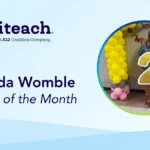You have found campuses to visit for your observation hours, started building connections with staff, and determined which schools are a good fit. What’s next?
Suppose you have found the place where you want to apply. In that case, your next steps are to craft your teacher resume with relevant experience, remain persistent during the application process, determine your references, and show your passion during the interview process.
Crafting Your Resume with Relevant Experience
Updating your resume without specific classroom teaching experience may seem daunting at first, but it can become more straightforward by breaking it out into manageable pieces.
When beginning to craft my resume, I first reviewed my old resume and highlighted experiences that still felt relevant to a career in teaching.
Next, I wrote out my previous jobs/ volunteer experience in a separate document and then added bullet points around specific tasks I performed or strengths I showed in that role that could be relevant to teaching.
At this point, I had my previous resume with items I wanted to keep and a new running document of what I needed to add. If you have a business resume, you likely will not need to update its formatting. Similar to an education resume, a business resume still includes key sections, like an objective, experience, skills, educational background, and contact information.
The most significant changes I made were to my objective and experience. I changed my job experience section to overall experience. These changes allowed me to add in all relevant experience, not only for jobs where I was paid for my work. Since I have experience volunteering in schools with students over the years, I felt this was vital information to include in my prospective teacher resume. My objective focused on obtaining a position in my desired subject area and why I am pursuing this type of role.
You can learn more about crafting your perfect teacher resume here.
Determining Strong References
All districts that I applied to required at least two professional references. Professional references are vital when applying to work at a school because you are applying for a role where you will work directly with students. Determining a reference that can speak to your strong character will help the hiring team feel confident in your ability to be a positive role model for your students.
When determining your references, consider contacts who can also speak to your passion for your content area, your interactions with colleagues, and your work ethic. Being a teacher requires all these qualities plus more, so choose references who will help bring your resume to life and share from their perspective why you will thrive in this role.
Remaining Persistent
Once you apply, pause to pat yourself on the back because you have come so far! You are almost in the classroom and pursuing a career that allows you to impact student lives on a daily basis.
Take pride in your progress, but do not give up because the application process is not over just yet. You must remain persistent to secure a role at your school of choice. In part 1, we discussed connecting with the department head while you are on campus and asking them who you should reach out to after applying. Pull out your notes, and immediately after applying, draft an email to let the suggested contacts know you have taken the next step to work at the school.
During the entire process, you must remember how busy the school administration is, and it is your responsibility to continue to make your interest in working for the school known. Securing an interview could require several follow-up emails. If you have not heard back from HR or admin, reach out to the department head to ensure the position is still available. This outreach can strengthen your relationship with an important contact on campus and can let you know to move on to applying to another school if the position is no longer available.
Showing Your Passion During the Interview Process
You were persistent and got the interview! Now, it is time to let your passion shine. When preparing for your interview, start by strengthening your ‘why’ statement.
Consider:
- Why do you want to teach?
- What brought you to teaching?
- Why do you want to teach in your content area?
Your answers to these questions will clearly express your passion and explain why you have reached this point. Practicing your responses to these questions and developing a 1-2 minute statement will help you feel confident when going into your interview because you know exactly why you are there and can clearly articulate why.
On the day of the interview, do whatever practices help you remain calm, whether that is writing down your thoughts, taking deep breaths, going for a walk, or calling a close friend or family member. You want to show your best self during this interview, so dig in and find out what you need to do to show up as your most authentic self. Dress in something professional that helps you feel confident and express yourself.
Lastly, you must thank those who interviewed you once you leave the interview. Your outreach can be as simple as a thank-you email expressing gratitude for their time and sharing your excitement about the opportunity to work at the school and become part of the community.
There is no one way to find the right field experience. By crafting your teacher resume with relevant experience, remaining persistent during the application process, determining your references, and showing your passion during the interview process, you are on your way to finding the right place for you. We are all unique individuals with our way of achieving success, so my process may only work for some. I hope one or two tips from my experience help you find and secure the teaching position of your dreams!





